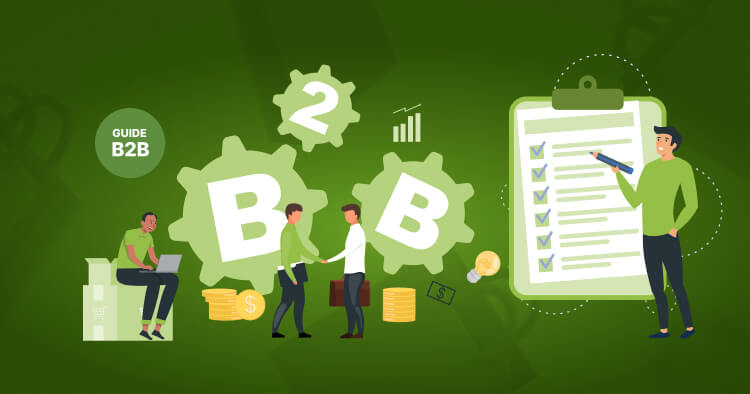About eCommerce SaaS Platforms:
eCommerce means “electronic commerce” and mainly deals with the transactions that take place on the internet, focused majorly on commercial transactions. This includes the buying and selling of a broad variety of products and services. It caters to all the different industries that exist, ranging from digital, like ebooks, music, gaming, etc. to clothing or accessories and even contracting services, and many more.
Many different types of eCommerce exist in today’s age and time, including: SaaS eCommerce, Open-Source platforms, and even on-premise ones that people can choose and use according to the needs of their businesses. eCommerce offers its users the chance to purchase and pay for the things that they can physically buy, but at the ease of their homes through a website, making it a great solution for the people of the new generation who want to control all of their chores and work by a click on their smart phones or gadgets.
Along with multiple payment channels and product or brand channels, some eCommerce software also include tools that help business owners effectively manage their online store and market in the best way possible, to lead them towards success. This makes eCommerce not only an easy option, but it can also help businesses become successful in limited resources and investment, making it a great option for all scales and sizes of business and companies.
-
About eCommerce platforms:
An eCommerce platform is a kind of a software that is web-based and permits entrepreneurs and business owners to manage their websites, their items and products that they are selling online, dealings with customers or other business owners, and in conducting other fundamental business tasks even if the user has no prior knowledge or information on the software. It is also significantly less expensive than other options of conducting business. Therefore, it is a better option than having a physical store for this purpose, and can also be managed from different locations, making it a mobile solution for your business problems.
As mentioned above, there are different kinds of eCommerce platforms, like SaaS, open-source and on-premise, but which suits your business the best could be different for all, as it all depends on the kind of business you own.
-
What SaaS means?
SaaS stands for “Software as a Service” which is a method of conducting business and conveying services using the internet. It deals with providing facilitated applications to its users and runs on the supplier’s or provider’s servers. It makes it easier for the user because it enables you to perform your actions hassle free, with no stressing over security or any execution and performance concerns, as it looks over all those. Moreover, it helps you successfully avoid from having to install any complex software for your use at all, making it a more demanded source of online business than any other.
-
What is SaaS e-commerce platform?
SaaS eCommerce is an effective platform which enables you to launch your store online, offering you a fast, reliable and budget friendly option, as it works around your website development, running and all designing solutions. In addition, it offers a Content Management System (CMS) that gives you the ideal solutions to launch the business, be it small or medium sized, and gives a variety of customizable options. In today’s time, SaaS solutions are very fast and effective, and the most upcoming option in these tech-savvy and digital times.
The best part about eCommerce SaaS is that it offers multiple platform options to satisfy all the diverse kinds of business needs, kinds and capacities. SaaS-based eCommerce platforms have applications that are authorized and used on a membership basis, where clients are supposed to subscribe for monthly packages that include all the different offerings of the SaaS eCommerce solution and vendors.
Additionally, these SaaS eCommerce platforms have customer support and technical help facilities too, that facilitate people even if they have no background knowledge of how to go about it, and give hosting security and all the different features as part of their packages. Thus, eCommerce Software as a Service option is the new generation tool that can help businesses improve their sales and cater to the youth market more effectively in recent times.
-
What are enterprise SaaS providers of ecommerce?
SaaS eCommerce platforms are generally known for their services towards small and medium sized businesses, and for businesses or entrepreneurs who are beginners and are about to start their work, but that is not it, and eCommerce SaaS platforms can also handle large companies and order volumes efficiently. User or buyer traffic management and drop shipping, etc. are also features of SaaS based eCommerce platforms, and if you have the right mindset, you, as an entrepreneur, can move forward with it successfully.
SaaS eCommerce platforms also work well for those enterprises and companies that do not wish to move their entire business online on an eCommerce system, and they just want to use the shopping cart function along with other systems for the rest of their operations. What such enterprises can also do is, use different systems for their purposes as they like, and then integrate it all together in their SaaS eCommerce platform, and run your whole business through the best of channels.
With such a mindset, you will not only get all the benefits of a SaaS platform and the best of eCommerce solutions, but you will also have your business running successfully on the best known solutions, which will help save costs, resources and give your customers a great shopping experience that no party will regret.
-
Disadvantages of SaaS eCommerce Platforms:
SaaS eCommerce platforms are highly appreciated and run successfully for most businesses, though they have some drawbacks and may not fit all of the business types. Some disadvantages that are visible in most of the SaaS platforms are mentioned below, so the user needs to make sure they are aware:
- Complexity:
New businesses would find it easy to settle with the tools and features that SaaS eCommerce platforms offer, and they can work around them easily. But bigger and well established businesses, especially those who have had much experience of physical shopping and have then shifted online, may need more than what these platforms have to offer.
This is because; some established businesses have greater needs, demanding a higher level of customization due to their highly complex processes that are involved in conducting their business. These complexities may include having a number of vendors, distributors or warehouses involved, with multiple marketplaces and international markets to cater to, making it very difficult for the regular SaaS platforms to handle so many areas at one time.
Thus, a business may need more than what is being offered to them, and have to either integrate multiple sources and systems together, or they will have to rely on their own custom built platform, increasing their cost budget and resource needs.
- Customization:
SaaS platforms are highly easy to use and their foundations and base are fairly simple, which may be an advantage to some, as it makes it workable for newcomers, it is often turned into a disadvantage for people who want more, and find out that there is a lack of customization available.
These software mostly work on pre-built and pre-determined features, tools and themes, that give little way to customization, and not all businesses can fit these same offerings into their business needs, leading to a restricted environment for SaaS eCommerce platforms. Moreover, some eCommerce SaaS make it difficult to edit and make changes you’re your website is up and running, building further restrictions for users.
- B2B Support and Needs:
Most SaaS based eCommerce platforms have started to seem like they are highly focused on a B2C premise, and have started to neglect the B2B criteria almost completely. While they are handling customers, purchases, sales, distribution, and other operations effectively, they are not focusing on the prerequisites of the B2B work environment, which includes: client valuation, discount evaluation, diverse payment terms for different vendors and teams, etc.
Due to this reason, B2B merchants are finding it difficult to work around eCommerce Software as a Service, and have started to look elsewhere for their solutions. Some eCommerce SaaS platforms do seem to provide these services, but even then, they are not effectively conducted, and lack focus on these matters.
-
Why is SaaS platform best suited for your online business?
SaaS eCommerce solutions have become increasingly popular among businesses and owners in recent times. About almost 40% of all the online stores SaaS based eCommerce platforms, and about 90% of the stores use some form of eCommerce Software as a Service. This may be for multiple reasons, such as:
- No need of buying any kind of expensive software.
- Coding knowledge and prior experience is not a requirement.
- Almost the whole website work can be done through the drag and drop operation.
- Multiple functionalities, features and tools are present to suit your business need.
- Extensions and plugins are available to enhance your website and store.
- Cloud storage is available to facilitate access from anywhere.
- You can run your website from any place with any device you have.
Many SaaS eCommerce platform reviews have also been gaged, and many different platforms have emerged as the best SaaS eCommerce platform across the charts, but competition still exists between big names, that we shall be discussing in this article further.
-
Magento eCommerce SaaS Platform:
Magento is an eCommerce platform that is highly preferred by many businesses and store owners. It has great features, and also has a community of multiple developers, giving a variety of options from themes and different plugins to choose from, according to your business type. It is actually free of cost, but an upgraded version does exist which is a paid upgrade.
Most of the checkout, order, shipment, coupon and tracking facilities are all available for the Magento online stores, and it also lets you send out alerts to update your user and purchaser body about any new launches, etc. A great feature of this platform is that it lets you create multi-lingual sites, for your customers across the globe, depending upon their region, which is an amazing customization to target specific audiences.
Even the Dashboard and other offerings by Magento are highly customizable, and have many preset options available to in case the user does not want to customize and want to get done with the website building faster. So in the price that the user is paying for Magento, it is offering them a lot, and it has many more advantages that users can take for granted once they start using.
Though, there is one downside to this platform, which is that, for some users who are looking to make a splendid website, that is flashy and a bar above the rest, this can prove to be a highly costly platform. This is due to the fact that such a user would go for further additions, plugins and domains that may be highly expensive, making it a non-affordable option at times for such people.
-
BigCommerce eCommerce SaaS Platform:
BigCommerce is one of the highly worked on eCommerce platforms, and it by far, has one of the clearest directions, ease of use and the cleanest dashboard to work with. The best thing about BigCommerce is that your online store can be up and running in the shortest amount of time possible.
BigCommerce integration lets you customize to a certain extent, has already built in tools, features and components, and has you covered with updated BigCommerce support services all day every day, offering multiple payment gateways and giving you a high security feature as well, making it one of the most competent SaaS platforms available today. In addition, all these features are easily available in side bars and menus, so that they are highly accessible.
Some of the major advantageous features that BigCommerce development company offers include:
- Unlimited amount of products, orders, bandwidth, etc.
- 24/7 live chat support
- Migration of your store and importing products
- Acceptance of payments via PayPal, Stripe, Apple Pay, Amazon and many more
- Order and Inventory Management
- Selling channels like Facebook, Pinterest, eBay, Amazon, etc.
- Multiple marketing features
- Built in web hosting and security
- Effective email marketing
- SEO features
Thus, with so many features and multiple subscription plans, BigCommerce web design company is sure to fit most of your business needs, no matter what size.
-
Shopify eCommerce SaaS Platform:
Shopify is the largest and most used SaaS platform in the world today, and about seven times more desirable than all the other SaaS based eCommerce platforms. Shopify offers an easy setup, having a handy dashboard, quick product adding solutions, and a customizable look for your site. It also facilitates migration from other sites very easily, and you can easily then import your earlier store or products into the Shopify system without any hindrance.
Adding products is relatively easier, as the titles, descriptions, prices, discounts, etc. can be easily filled into the given fields and saved. The filling of these fields is also exceptionally simple and clear, because each field already tells you what it requires and what it is used for, so any error and mishaps are taken care of automatically.
The same kind of simplicity is also available in customer management, order details, store stats and analysis, etc. All the sections and fields related to the store are accessible easily from the menus without any hidden options. Some of the main features that are highly regarded as important in Shopify include:
- Unlimited orders, products, etc.
- 24/7 customer and technical support
- Mobile commerce available
- Usage of your own domain name
- Free SSL certificate
- Acceptance of credit cards and more than 100 payment gateways
- Cheaper carrier shipping rates
- Automatic tax calculations
- Website drag and drop builder option
- Full time blogging platform
- Multiple languages available
- Shopify Search engine optimization
- Product reviews are available
- Gift cards option
- Complete social media integration
- Easy Inventory management
- Advanced reporting
- Mobile app also available
So with all these exceptional features and ways to make your business a success, no wonder Shopify is one of the most used platforms for SaaS eCommerce, and it is continuing to get better with time.
-
Volusion eCommerce SaaS Platform:
Volusion is another eCommerce SaaS platform that is known to be famous amongst users who are building an online store, and has been claimed to have a nice and pretty structured dashboard that users can work on. This dashboard makes it easier for newcomers to commence their way into building an online store by providing a wizard alongside a step by step guide to successfully take you through the whole setup process.
All the options, sections and usable features are placed in the top menu, where all users can easily navigate and access them. Addition of new products, fields, and orders is a quick and easy exercise, and Volusion offers multiple great features as mentioned below:
- Selling unlimited products
- Unlimited orders and file storage
- 1 – 35 GB of monthly bandwidth
- 24/7 customer support through chat, phone, etc.
- Visual website builder
- Acceptance of credit cards
- Ratings and reviews are available
- Newsletters can be published and sent to customers
- Easy import and export of products
- Built in SEO tools
- Reports are readily available
- Effective social media tools
- Payment acceptance through Stripe, PayPal, Amazon, etc.
- Automatic handling of shipping rates
- Abandoned carts are reported and solved
- Easy integration with eBay and Amazon
- Batch order processing also available
Volusion is, as you can see, a great starting point and platform, especially because it keeps costs at a minimum and also deals easily with smaller sellers who do not even have hundreds of products to sell.
-
3dcart eCommerce SaaS Platform:
The next most commonly used eCommerce solution for SaaS companies is the 3dcart eCommerce platform, which not only has a clear and easy to understand main user interface, it also has a clearly visible and workable dashboard. The areas and features you need are all tucked into the side bar, which is also very visible, and there is also a guide and tutorial available of the main page when you log in, to better understand the usage.
Since beginners may struggle with setting up their own business and products, 3dcart provides some sample default products in the catalog in order to help facilitate you as you begin the process. The products can be used to structure the store the way you want, add the desired descriptions, and see how your store would look to others before finalizing it all.
Some essential features that you will find at 3dcart are as follows, which make it a successful SaaS eCommerce platform:
- Selling of unlimited products is possible
- Unlimited orders, file storage, etc. are offered
- 24/7 availability of live chat and phone for customer and technical help
- Mobile & social media ready
- Can sell on online options, e.g. eBay, Amazon, Google, Facebook, etc.
- Upselling and Cross-selling is also possible
- Can make easy bulk imports and exports
- Product related questions & answers are readily available
- Customer reviews are also present for new customers to review and make their choice
- It gives detailed product reports on a regular basis
- SSL certificate is already included
- Daily backups keep happening to keep updated data stored
- Provides its own hosting service
- Simple shipping dealings
- Acceptance of payments through multiple channels
- Marketing and SEO features are available for appropriate use
A little drawback of this 3dcart is its visual editor, which may have a bit of technicalities and issues, but once you get the hang of it, you can take the most advantage out of this SaaS eCommerce platform in no time, especially if you do know a bit of coding.
YouCam Online Editor API eCommerce SaaS Platform
YouCam Online Editor API stands out as one of the best eCommerce SaaS platforms for businesses in the beauty and fashion niche. By integrating advanced tools like AI Skin Analysis and Generative AI Clothes Try-On, it enables retailers to shift the shopping experience from a product-centered approach to one that revolves around each customer’s unique needs and preferences. This creates an immersive, interactive website experience that not only attracts visitors but also keeps them engaged and increases conversions. With a usage-based pricing model, businesses can adopt the technology quickly and cost-effectively, making it easy to test customer response and refine offerings without heavy upfront investment. Ultimately, YouCam Online Editor API helps transform eCommerce websites into personalized shopping destinations that drive real revenue growth.
- Conclusion
SaaS eCommerce comparisons, as seen above, show that a lot of competition going on amongst many different eCommerce platforms, and people are mostly using the one that they understand the best and are well suited to their business, which is the main purpose.
The fact remains, no matter what any of the eCommerce platforms suggest or offer, the right fit of platforms for any company depends on its own operations, compensations, resources, and usefulness, along with the business needs of the company kept in mind.
Though Shopify and BigCommerce seem to be bigger names in the eCommerce SaaS market, Magento and Volusion are not far behind. So, it is best to chalk out your business needs, tally it with whatever you know or have found out about the different platforms, and then finally settle for the best fit for you, your business and your profits.
-
What is the future of eCommerce software as a service?
The reason that SaaS eCommerce platforms have caught so much attention in recent times and have emerged as the easiest possible choices to take your store online and build a website for it is their ease of use, the user friendly interface they provide, the wide variety of customer base that can be targeted without any high charges, and a business owner has multiple features and options to choose from to start their online business.
This is what the future is also looking forward to. The future is going to rely more on cloud based computing and customer and store management, which is one thing SaaS eCommerce platforms are already working on. Moreover, the fact that many of these platforms also have a mobile application and integration, people can work for their stores on the go too, without any hassle of physical presence of anything.
IT professionals, globally, are now working on improving some of the above mentioned top SaaS eCommerce platforms, which would become a better option and have an even better outlook once it is completely updated. Open Source would also be a high selling service, but with all the features and tools that SaaS platforms are offering for the minimal price they are charging, it makes complete sense to work with SaaS rather than Open Source.
- FAQ
Q1) Is Shopify a SaaS company?
Yes, Shopify is one of the most selling and sensational SaaS platforms online, and people around the globe are working with it. It gives a great balance between managing an online store, and the ease of use that is required by new businesses and owners, making it a great starting point for almost everyone. With the theme templates already available, it allows easy add ons and plugins if needed, and has more than 15,000 merchants online using this platform.
Q2) Is Magento a SaaS?
Magento has about 110,000 users almost using its different variants and editions, and has multiple vendors, retailers and purchasers on it. Magento Go is one of the recent and newest additions to the SaaS eCommerce platforms, and is owned at the background by eBay. Initially, Magento was built to help out the new owners and beginners in the field of eCommerce, but over time, it has evolved into an essential and reliable eCommerce platform, is helping build multiple people an online presence of their choice.
Q3) What are the top 5 SaaS ecommerce platforms by number of paying customers?
The number of paying customers is always based on how many visitors of the platform are actually converting into users and signing up for subscriptions to the platform. In order to increase the number of paying customers, a platform needs to offer a simple checkout process and reduce the cart abandonment issue to a minimum.
As of last year’s final verdict, the following SaaS eCommerce platforms have topped the charts for the most successful platforms according to the number of paying customers:
- WooCommerce Development Company Pricing (Specially Minimum than all )
- Magento
- Shopify
- BigCommerce
- 3dcart
Q4) Is it better to build a SaaS or an eCommerce business?
It is better to build a SaaS business, because even SaaS is a part of the eCommerce, and all eCommerce functionalities and tools can be used in the SaaS system too. In addition, SaaS has multiple in built resources and functions to help the user out in effective and quick setting up of their online store, giving them preset themes, and many basic customization options, nothing too fancy or time consuming.
Q5) Difference between SaaS vs Open Source vs On-Premise Platforms?
Saas, Open Source and On-Premise platforms are all very different from each other, and have some advantages and some disadvantages of their own. Some may be better suited to your business, and some may not. Look at the table below to find out about each kind of platform in more detail:
SaaS vs.Open Source vs. On-Premise
| SaaS | Open Source | On-Premise |
| § Require a monthly subscription to work | § Cost effective, as most are free of any charges | § Costs much more than the other two options |
| § Easy to use | § Less time consuming | § Needs a physical location to operate |
| § Web hosting is already built in | § Easy to set up | § Has prerequisite hardware and software needs |
| § Third party integrations are possible | § Easy third party integrations are possible | § Regular hardware maintenance required |
| § Provide out of the box functionality | § No web hosting available | § Manual updating of software required |
| § Restricted customizations and very low personalization abilities are offered | § Flexible customizations and very reasonable personalization abilities are offered | § Complete control over everything related to it, including customization and personalization |
| § In built security options are available | § Need to integrate third party security options | § Need to prepare security options yourself |
Thus, as is visible, each kind of platform has its own pros and cons, and only your personal business needs can clarify which platform is best suited for you use.
Q6) How does a SaaS ecommerce model work?
Software as a Service (SaaS) eCommerce model works on the basis of providing multiple tools and functionalities to its users for their online store, and charging a monthly subscription fee for it. Once you have a SaaS system, no other complexed software or hardware are required.
Any SaaS platform can work from different regions, and is mostly based on cloud computing, making it a more mobile and flexible working space. All the tools and functions that are required to build a basic website are already in built into a SaaS system, and customer support is present all around the clock to facilitate the users in setting up their business online, even if they have no prior knowledge of technology or coding.
Q7) Top benefits of creating a website with SaaS eCommerce platforms?
The following are some of the top benefits using SaaS eCommerce platforms for creating your business website and running it:
- Out-of-the-Box Solutions – Almost all of the SaaS eCommerce platforms offer out-of-the-box solutions to people. Most features, basic bigcommerce,shopify and WooCommerce design and management capabilities are already built in, so it is easy for new projects and users too.
- Maintenance – SaaS eCommerce platforms are known for their built in hosting and maintaining services. Watching the store and keep monitoring it is all conducted by the platform automatically; you do not have to do it.
- Security – SaaS eCommerce providers make sure your website adheres to the PCI compliance standards and it automatically fixes any security bugs, keeping you totally secure, which helps in gaining customer trust.
- Scalability – This is very important, and SaaS eCommerce platforms do offer it as the software can grow in taking more orders, more customers and giving more functionality if there is a need for it by the business owner. Additionally, it is known that SaaS platforms do it in a much cheaper price range than other platforms.
- Cost – SaaS eCommerce platforms have low upfront costs, very less hidden expenses apart from what you are paying for as the monthly subscription, and everything a business needs is more or less in built, leaving the business no expense worries whatsoever.
- Easy Integrations – As we have also read above in the article, SaaS eCommerce platforms are very open and friendly towards third party integrations, so it does not matter which third party options the user wants, they can integrate it to their main SaaS eCommerce system.
More Blogs:
How to setup Online Business by using Magento Website?
Why Magento Is Considered The Best Platform For eCommerce Development?
Why You Need to Build Your Ecommerce Store With Magento
Get our professional Magento Development Services worldwide in affordable rates. Contact us















